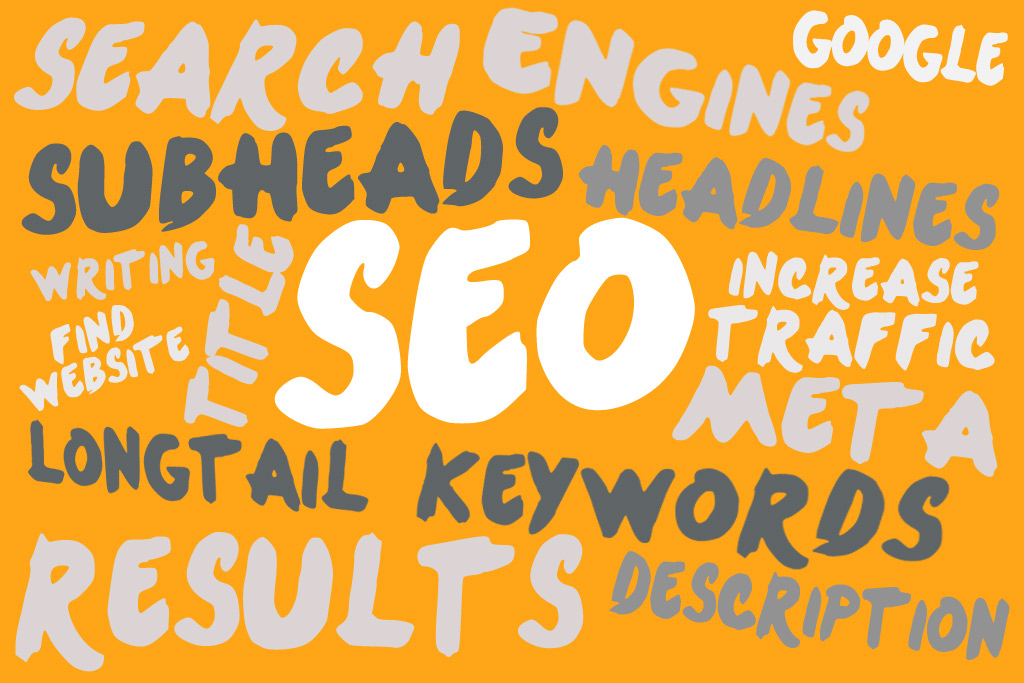Seven things you NEED to do now to boost your SEO
SEO is becoming increasingly important for businesses today – and increasingly competitive as a result. Discover Seven things you NEED to do now to improve your rankings.
The best time to start working on your SEO was yesterday, the second best time is right now. Why? Because ranking at the top of Google for the right search terms is becoming increasingly more important – and increasingly harder.
But all is not lost if you haven’t started working on your SEO yet. It’s much easier than you may think to understand how SEO works and use it effectively. And when you do start using it properly, you can expect to see results.
In this article we explain why ranking at the top of Google is so important, seven things you need to start doing now to help your SEO, and how we can help you write your entire SEO strategy in just four weeks – starting today.
Why you need to rank on page one of Google now
Every business that has a website also needs to understand and use SEO properly. Gone are the days when SEO was a luxury only businesses with the budget to pay an agency could afford. If you don’t know how to rank for the right search terms on Google, you are missing out on business every day. Just look at these SEO statistics:
- 68% of online experiences begin with a search engine.
- 53.3% of all website traffic comes from organic search.
- 92.96% of global traffic comes from Google search, Google Images, and Google Maps.
- SEO drives 1000%+ more traffic than organic social media.
SEO has also become much more competitive. Today 96% of all clicks happen on the first page of Google, and 28% of all clicks are on the top result of page one. So if you aren’t ranking on at least page one of Google, you may as well not bother.
Want to boost your Google rankings? Here are seven things you need to do now
So what can you do to help maximise your chances of ranking for the right terms and hitting that all-important top spot on Google? Here are seven things Google is looking out for now.
1) Make sure your headlines and meta data accurately reflect your content
Google is getting even better at spotting the most relevant and reliable information. So you need to ensure that your content is high quality and your SEO accurate. To help you achieve this:
- Ensure your headlines and meta descriptions accurately reflect your content
- Make sure your content genuinely reflects the keywords you use
- Don’t copy and past content from other pages or blogs
- Link to high quality sources when sharing data and quotes
- Make sure any backlinks are from relevant, high quality websites
2) Consider personalised search
In its results pages, Google currently shows results based on activities from all internet users. However, its aim is to improve the search experience of every user, so the search results you see are influenced by the history of your visited pages and most frequent queries. Basically, search will become more tailored to your interests.
So how does this affect you? It means it’s even more important to practice good SEO and aim to get your content ranking for the right keywords. SEO will become more competitive and the sites that do rank for SEO (and therefore appear in someone’s search history) are more likely to be chosen by Google in future.
3) Use more conversational search terms
With voice recognition and search becoming more prevalent, search terms are changing from more simple, functional keywords and phrases, like ‘ice cream Brighton’ to more conversational search terms, like ‘where can I find the best ice cream in Brighton’.
So when choosing keywords for your SEO, aim for more conversational terms – the kind of question someone might ask in a conversation, rather than traditional, old-style keywords that were more abrupt.
4) Use related keywords
Google is continually looking for ways to stop people trying to cheat the system, and keyword stuffing has always been a bad idea. As Google gets smarter at reading and evaluating content, related keywords are becoming even more important.
So when writing content you want to rank for SEO, make a list of any keywords that are connected to the ones you want to rank for and include them too. So, for example, if you wanted to rank for ‘best ice cream in Brighton’ and your ice cream shop is on Kensington Gardens in the North Laine, you might also consider including these related keywords:
- Brighton pier
- Kensington Gardens
- North Laine
- Brighton station
- East Sussex
- Ice cream parlour
- Ice cream flavours
- Favourite ice cream
- Local food reviews
- Cornet
5) Build your local SEO
One side-effect of the pandemic is that people are socialising and driving around less. So rather than stumble upon a local business while they’re out, or hearing people talk about them (or being able to ask directly) we’re relying on the internet much more for local information.
This means doing everything you can to rank for local SEO if you are a business who relies on local custom. Even after the pandemic ends, people are more likely to work locally, and will already have developed the habit of using their devices to search for local information, so it’s a trend that looks set to stay.
6) Follow Google’s EAT principle
Google have a principle called EAT (expertise, authoritativeness and trustworthiness). This is a guideline that serves as a reference for Google’s human search evaluators – the people who rate how well Google’s algorithm is doing its job. And by association, it also is an essential tool for insights into what Google looks for in a high-quality web page.
Here’s what EAT means:
- Expertise: Are you (the creator of the content) an expert on the topic? And if so do you have credentials backing this up on the website? This can be qualifications (making you a proven expert) or everyday expertise (for example writing a restaurant review website and having a bank of work that demonstrates your knowledge).
- Authoritativeness: This refers to the content creator, the content itself and the website it is on. You need to have general, recognised authority. So people know you for your expertise and you are considered an expert on the subject.
- Trustworthiness: Again this refers to the content creator, the content itself and the website. Are you a trustworthy source? Can people trust you to provide honest, true information that is accurate?
EAT is becoming increasingly important for ranking so make sure you do as much as possible to demonstrate your expertise, authority and trustworthiness. Here are some suggestions:
- Link to trusted, authority sources.
- Get more backlinks from relevant, authority websites.
- List the credentials of yourself or any contributors on your website.
- Write guest posts on relevant, authority websites.
- Do as much as you can to grow your reputation in your field generally.
- Focus on building content pillars and topic clusters.
7) Create pages for people, not Google
According to Google, “Websites and pages should be created to help users.” This means that every web page or blog you create and write must fulfill its intended purpose, and that purpose should be ‘user-centered’ – whether that is to make someone laugh, sell them something, inform them, teach them, etc.
If you have no idea how to make your site user-centered, you can talk to these experts with Google profiles for help. Any page that is created with the intention simply to make money, with no attempt to help users is considered the lowest quality page.
Put simply, if you want a page to rank on Google, focus on providing the best possible user experience, rather than trying to second guess what the Google algorithm is looking for, and making your page fit that.
This has always been important, but as Google gets more and more sophisticated in reading and ranking pages, this will become even more essential.
Love our help to climb the Google rankings?
Luckily, as search traffic has grown, so has the number of search terms people are looking for – and your opportunities to rank. So it’s easier than you may think to hit page one of Google… as long as you have a strategy!
And that’s exactly what we show you in both our SEO Masterclass and SEO Kit. So if you have a business website and aren’t yet confident you are using SEO properly and getting the most out of it, I recommend joining one of these.
Here’s how to work out which one is best for you now:
- Buy our SEO Masterclass if you are a complete beginner and want an easy explanation of how SEO works and want DIY practical advice you can use immediately. (Click on the link for a special, time-limited offer if you buy now.)
- Buy our SEO Kit if you are a beginner, or have some SEO knowledge but don’t know how to put it together to do SEO well. Our SEO Kit walks you through everything you need to know and do for SEO in easy steps.
It’s the easiest (and cheapest) way to do your SEO and help your website to hit that all-important spot on page on of Google for the right search terms.
So if you’re ready to plan your SEO strategy, come and join us inside the SEO Kit and get started right now.
Photo by Windows










